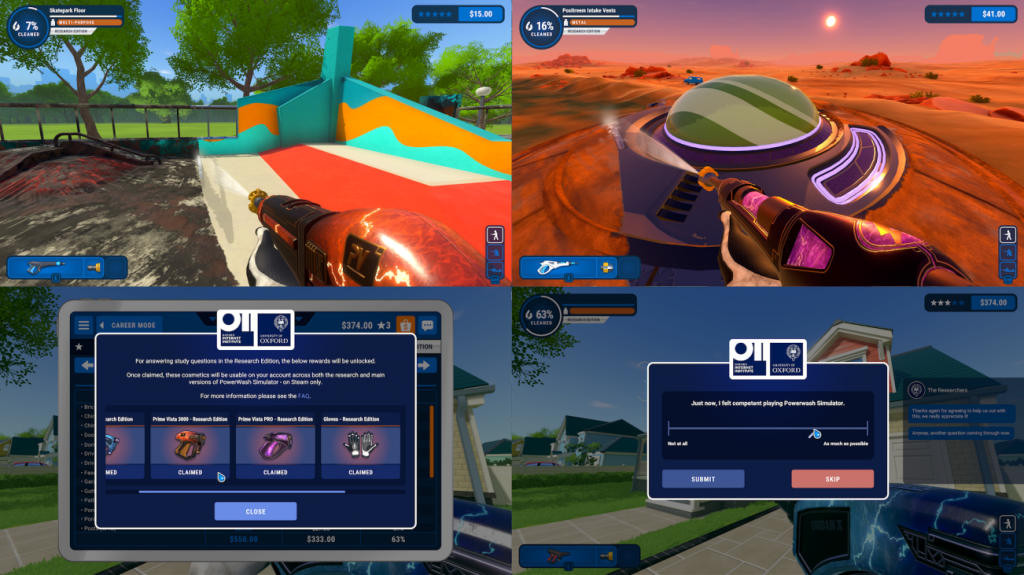
PowerWash Simulator developer FuturLabs has collaborated with the Oxford Internet Institute (University of Oxford) to conduct a study into how playing video games affects players’ well-being.
Wash and Learn
If you’ve played PowerWash Simulator, Donut County or Unpacking, you’ll have first-hand experience with how zen-inducing those games can be. When I’m playing this type of game, I often find myself entering a Flow state. A complete feeling of immersion, fulfilment and enjoyment. If you’ve ever looked away from the TV or monitor and wondered where the past 4 hours went, chances are you’ve experienced this too. Now there’s a comprehensive data set created to explore this subject.
The study was conducted by gathering data from over 11,000 PowerWash Simulator players. An open data resource is now available for free to anyone with an interest in the topic. You can find our PowerWash Simulator Early Access article here.
How can we measure happiness gained from gaming?
FuturLab worked with the Oxford Internet Institute (OII) to create a modified version of PowerWash Simulator. Players were then offered a chance to download this version of the game and consent to participate in the study. The study aims to provide a vast data set that doesn’t rely on an artificial setting or solely self-reported information. When playing this experimental build, a player would be surveyed for a response to one of 6 questions up to 6 times an hour. Players could also optionally self-report their happiness via the in-game menu. Additionally, there was a 10% chance a player could be asked about their happiness level upon logging in.

All of this player data, which included information on enjoyment and autonomy, was then paired with in-game event information and sent to the researchers. The data was then cleaned and has now been made available via a zipped series of CSV files. Subsequently, anyone with an interest in the topic will now have access to an unprecedented data set of over 700,000 unaggregated survey responses, along with millions of gameplay events captured over 222 days of gameplay.
Whilst the full study is yet to be peer-reviewed and published, an early example is given in the paper for the dataset that concludes there is a positive correlation between well-being and game engagement.
Final Thoughts
Personally, I think the choice of the game would have a huge impact on the results of a study like this. Playing a relaxing game is going to make you more relaxed, akin to art therapy. Survey players embroiled in heated Call of Duty or FIFA multiplayer games and you may well see an opposite effect. Still, this research is very interesting to me and I look forward to the full study.

YouTube | Facebook | Twitter | Instagram | Discord | Podcast
